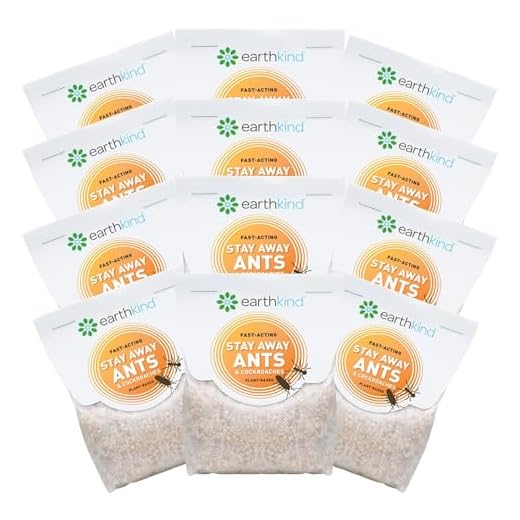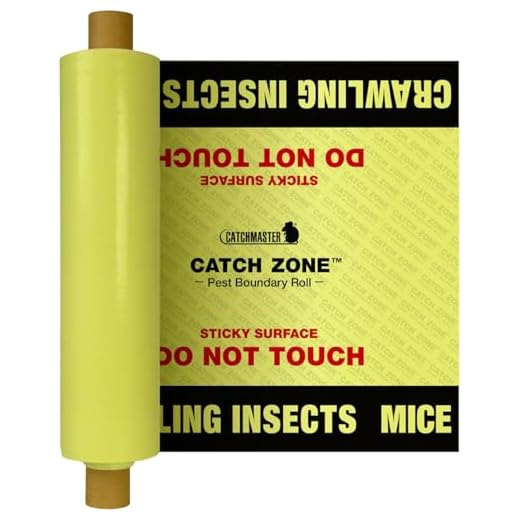



Using airtight containers is a great strategy to maintain the quality of my meals while deterring unwanted visitors. Selecting high-quality, sealed bins not only keeps my treats fresh but also makes it difficult for little intruders to access them. Glass or sturdy plastic options work best for this purpose.
Another effective method involves placing my dining area on a surface that is hard to climb, like a table or counter. This simple change can significantly reduce the chances of uninvited guests reaching my meals. Elevating the bowl also helps, as it creates a barrier.
Utilizing natural repellents can be quite beneficial. Sprinkling cinnamon or placing citrus peels near my feeding station can repel those tiny intruders without causing harm. These scents are pleasant for me and act as a deterrent for them.
Regular cleaning is essential, too. Ensuring that my eating area is free of crumbs and leftover bits will discourage any foraging. Frequent vacuuming and wiping down surfaces will help maintain a clean environment. Creating a routine will keep my spot tidy and less appealing to curious critters.
Understanding Ant Behavior and Attraction to Cat Food
To minimize unwanted visitors, it’s crucial to grasp why these little creatures are drawn to my meal. They are excellent foragers, detecting scents even from afar. The aroma of kibble or wet nourishment can trigger a feeding frenzy.
These critters communicate via pheromones, leaving trails that others follow. If one finds a tasty morsel, it marks the path for its companions. A single crumb can lead to a full-on invasion, so vigilance is key.
Temperature and humidity can also influence their activity. Warm, moist environments attract them, making the area around the dining spot a prime target. Keeping the surroundings dry and cool can deter them from making a move.
Additionally, they are opportunistic eaters. If there’s an easy meal available, they won’t hesitate. Sealing containers tightly and using heavy bowls can prevent access. Consider placing a barrier, like water-filled trays, beneath the food dishes to create an obstacle.
Lastly, regular cleaning is essential. Crumbs and spills left unattended become a beacon for these little invaders. Regularly wiping down surfaces and ensuring no stray bits remain will help maintain a fortress around my meals.
Choosing Ant-Proof Cat Food Containers
My humans should consider using airtight containers made from durable materials like stainless steel or heavy-duty plastic. These types are less likely to be breached and can effectively protect my meals from intruders. Look for containers with secure, locking lids to ensure a tight seal.
Size and Capacity
Select a size that accommodates my eating habits without leaving excess kibble exposed. A smaller container is often better for daily use, while larger ones can store bulk supplies. Just make sure they are easily accessible for refilling.
Additional Features
Some containers come with built-in scoops or measuring devices, making it easier for my humans to serve my meals without spilling. It’s also worth checking for options that include a base designed to prevent slipping, which helps avoid accidental spills during feeding time. For those who like to mix it up, containers with compartments for different types of kibble can be quite handy. Lastly, if you’re curious about regulating pressure in other applications, check out this article on can pressure washer pressure be regulated.
Implementing Proper Cleaning Routines for Feeding Areas
Regularly sanitizing the dining space is non-negotiable. After each meal, I ensure that every crumb and morsel is wiped away. A damp cloth works wonders in eliminating traces of leftovers, which can attract unwanted visitors.
Utilizing a designated mat beneath the feeding dishes can simplify cleanup. Just lift it and shake off any debris. Additionally, washing the mat weekly will help maintain a clean environment. I also suggest using warm, soapy water to clean the feeding bowls daily, as this removes odors that might lure in unwelcome guests.
Establish a Schedule
Creating a cleaning schedule keeps the feeding area consistently tidy. I recommend doing a thorough clean every few days, coupled with daily spot checks. This ensures that no remnants are left behind, reducing the likelihood of any unwanted intruders.
Monitor Surrounding Areas
Your space should be free of clutter and crumbs. Regularly inspect areas near the feeding spot for potential attractants–like dropped snacks or spilled treats. Maintaining a tidy home is key to preventing any visits from uninvited seekers.
For additional tips on creating a comfortable space for your furry friends, check out the best curtains for cats. Keeping everything clean and organized can make a big difference in enjoying meal times peacefully!
Utilizing Natural Deterrents Around Food Bowls
Using natural substances can be a clever way to prevent unwanted visitors from snacking on my meals. Some tried and true options include cinnamon, vinegar, and essential oils. For example, placing a ring of cinnamon around my bowl can help. The strong scent often drives away little intruders.
Cinnamon and Other Spices
Besides cinnamon, other spices like black pepper and cayenne can also serve as barriers. These add a potent aroma that many find unpleasant.
Essential Oils
Essential oils such as peppermint or tea tree can be effective too. Just a few drops mixed with water in a spray bottle creates a natural repellent that can be sprayed around the feeding area. Remember to keep these oils away from my bowl directly, as some can be harmful if ingested.
| Deterrent | Usage |
|---|---|
| Cinnamon | Sprinkle a circle around the food bowl. |
| Black Pepper | Sprinkle lightly around the area. |
| Cayenne Pepper | Mix with water and spray around the feeding zone. |
| Peppermint Oil | Mix with water and spray, avoiding direct contact with food. |
| Tea Tree Oil | Similar to peppermint, used as a spray deterrent. |
Creating a barrier with these natural options helps keep my meals safe and sound. Plus, they’re easy to find and use, making mealtime much more enjoyable!
Setting Up Ant Barriers to Protect Cat Food
Utilizing physical barriers is a proactive method to safeguard my meals. Here are some practical approaches I recommend:
- Moat Method: Place food dishes inside a shallow tray filled with water. This creates a barrier that is difficult for little creatures to cross.
- Sticky Traps: Position adhesive traps around the feeding area. These will catch any intruders attempting to access my dining space.
- Elevated Platforms: Use elevated surfaces for feeding bowls. Higher locations reduce the chances of unwanted visitors climbing up.
- Plastic or Metal Dishes: Choose dishes made from slippery materials that are hard to climb. Avoid porous surfaces that can be gripped easily.
Creating a Controlled Feeding Zone
Establish a designated eating area with additional barriers:
- Surrounding Walls: Build small walls or use furniture to create a confined space for dining.
- Food Covers: Use lids or covers that can be secured over bowls when I’m not eating. This prevents access during off-hours.
These strategies ensure my meals remain undisturbed and tasty, while keeping those unwanted visitors at bay.
Monitoring and Responding to Ant Activity
Regular checks on the feeding area are crucial. I suggest inspecting the space daily, especially after meals. Look for any signs of little invaders–trail marks, droppings, or even a few stragglers. If you spot any, it’s time to act quickly.
Setting Traps
Place sticky traps near the bowls. These traps can help catch any that venture too close. Ensure they are out of reach from my paws. Check them frequently to see if any tiny creatures have been caught.
Adjusting Meal Times
Consider feeding me at specific times instead of leaving food out all day. This will limit access for any unwanted visitors. After meals, promptly remove any leftovers to prevent attracting more of them.
Educating Household Members on Ant Prevention Tips
Sharing knowledge about keeping these creatures away from my dining area is key. First, hold a family meeting to discuss the importance of not leaving any uneaten morsels in the open. Each person should take responsibility for cleaning up after meals, including wiping down surfaces where I eat.
Next, make sure everyone understands the significance of sealing any leftover portions in airtight containers. This reduces the chance of attracting unwanted visitors. Encourage everyone to check my feeding station regularly for any spills or crumbs, ensuring it remains tidy.
It’s helpful to designate a specific area for my meals that is easy to monitor. This allows family members to notice any signs of these intruders quickly. Combine this with a routine check-in, perhaps every few days, to ensure the area stays clean and protected.
Education about natural repellents can also be beneficial. Discuss using substances like vinegar or citrus peels around my meal spot, which can deter those pesky invaders without harming me. Everyone should be aware of which products are safe for use around pets.
Lastly, make it a fun activity! Create a chart to track everyone’s efforts in keeping the space clean. Rewarding each other for maintaining a tidy feeding zone can motivate everyone to participate actively in the mission to keep my meals safe. Together, we can ensure my dining experience remains pleasant and uninterrupted.
FAQ:
What are some practical methods to deter ants from accessing my cat’s food indoors?
To keep ants away from your cat’s food inside, you can use several methods. First, try placing the food bowl in a shallow dish filled with water. This creates a moat that ants cannot cross. Additionally, consider using ant baits or traps around the area, which can help control the ant population. Regularly cleaning the area where the food is located is also important; even small crumbs can attract ants. You may also want to store your cat’s food in airtight containers to minimize odors that attract ants. Lastly, sealing any cracks or openings in your home can prevent ants from getting inside in the first place.
Are there any natural repellents I can use to keep ants away from my cat’s food?
Yes, there are several natural repellents you can try. One effective option is to sprinkle cinnamon or diatomaceous earth around the area where your cat’s food is placed. Both substances can deter ants without harming your pet. Vinegar is another solution; mixing equal parts vinegar and water in a spray bottle and applying it around the food area can create a barrier that ants dislike. Additionally, essential oils such as peppermint or tea tree oil can be mixed with water and sprayed near the food bowl. Just ensure that any natural repellent you use is safe for cats, as some essential oils can be harmful to them. Regularly reapplying these natural methods will help maintain their effectiveness.











